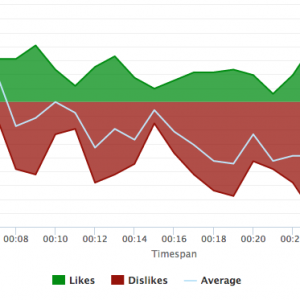Branded vs. Non Branded Traffic: Pros and Cons
First of all, what is branded traffic? You probably know that branded traffic is good for your business. Everyone is doing it, so I should do it too. But do you know what branded traffic is? Are you familiar with how it works and how it can boost your marketing strategy?
You should know that Branded and non-branded searches are different organic drivers that get you more leads and customers to your site or landing page. These SEO marketing tools help you understand your brand’s traffic and that of your competitor’s to truly engage your customers.
When we talk about Branded traffic, we are referring to all the users that click on your website because they are looking for your brand name. This includes typos and different ways to spell your brand name too. Branded keywords are unique to your business. Traffic comes from users that have heard of you before and want to learn more or perhaps, they saw one of your ads on social media.
Branded traffic increases your visibility and grows your brand awareness too. On average, they deliver conversion rates that double that of non-branded ones.
These are some examples of branded keywords which include a company’s name:
- Netflix movie
- Netflic series
- McDonald’s
- Iphone
- Domino’s menu
The key to branded keywords is to know how to use them. There are different forms of terms variations that you can use for your campaigns:
Brand + product (for example, apple iPhone)
Brand long tail (mazda 2019 vs. mazda 2020)
Brand + website (videos on how to use your product/service)
Brand + sale (Adidas 50% off)
Brand + coupon (include a promo code or discount to shopping cart)
The proper use of branded keywords will lead loyal customers directly to your landing page, and it is more cost-effective. More engaged customers leads also to higher conversion rates in the short term. You can start by doing a comprehensive search on Google Keyword Planner or any of your favorite keyword research tools to find the keywords that are specific to your brand. Choose a goal for each one and monitor them.
Non-branded keywords on the bench
Non-branded keywords are those that relate to your business but don’t contain the name of your business. Non-branded traffic are the users that click on your site from organic searches, social media, referrals, and more. It doesn’t use your brand name directly but still drives traffic to your website if used correctly. This traffic has a high volume of clicks but is also more competitive.
Think of your non-branded keywords as the keywords that you usually use for your SEO campaigns. These terms should be thought of as per their value and intent. How they can help you achieve your goals and how they can help you build your brand around them.
Each non-branded term that you use can help you increase your company’s visibility, reach new leads and grow your business through search results.
Some examples of non-branded keywords will look like these:
- Smartphones (can lead to companies such as apple, samsung, etc. to help them reach new customers for example).
- Pizza (can lead to Domino’s but also to papa johns). This type of keyword helps increase the visibility of your brand.
- Digital Marketing Agency (can lead to your marketing agency, but also to others on the SERPs).
- Fast Food Burgers (can lead to McDonald’s but also to Burger King).
There are three types of non-branded terms:
- Informational (80% of searches): users that are looking for general information on a subject. They want to learn how to do something by themselves.
- Transactional (10% of searches): users that are looking for information about a type of product/service with the intention of buying. They are ready to act, and they are choosing the best solution.
- Branded/navigational (10% of searches): users are looking for a place to get there quickly or know where they want to go.
Which one is more valuable?
Marketing strategies for many companies include bidding on branded terms to assure they are on top of the SERPs list. Are branded keywords worth your money? Are non-branded terms worth your time and effort to pursue?
Branded and non-branded terms can both assist you in your online awareness strategy and conversions, however they are structured in a different way. There are important differences between both of them that we will see in this blog, whereas they are both valuable and worth your marketing team’s time.
In this blog, we’re going to clear up these differences and the importance of their use on your own SEO marketing strategy. Get ready for the ultimate guide and boost your SEO!
Pros of Non-branded traffic
- Non-branded traffic helps you reach new users that are not familiar with your brand.
It means users are curious about your offer. These terms drive more new visitors to your site, whereas branded ones drive returning visitors.
- You don’t have to rely on one source to drive traffic. Don’t put your eggs in the same basket!
- Get higher conversion rates! Users that come on your site are usually more engaged. This means that they are more likely to convert into leads or customers at some point. Why? Because they are looking for a product/service and not a specific brand. Is up to you to make them fall in love with your brand.
- Non-branded keywords help companies gain visibility through organic search and not spend a fortune on ads! You can use tools like Google’s Keyword Planner to search for non-competitive keywords.
Cons of Non-branded traffic
- Anyone can look for a non-branded keyword. This means other companies and brands will come up on the search results.
- You need to create authority around the chosen keyword to appear in google’s first page. So still you have to do your homework!
- A competitive keyword can also be expensive in PPC.
What about branded traffic?
Moreover, branded traffic leads to brand recognition and awareness. Isn’t that something every brand wants? Strong brands gain credibility and are more likely to increase their sales in the long run. No doubt branded terms are great. They allow you to establish your presence with your brand on the SERPs.
Pros of branded traffic
- The most important one is that it drives traffic to your site or landing page directly. It builds confidence and trust for your brand.
- You can control the messaging and higher engagement from social media and online presence. You can optimize your title, descriptions, and meta tags to rank higher. You can also include a specific call to action (try demo, for example). You can change your ad or message too if you are AB testing.
- Search intent is clear, and users are searching for your products or services. Ultimately, the goal of your site is to generate sales and this traffic searches specifically for your products and services.
- Strong brands tend to perform better in their Google Ad Campaigns.
Cons of branded traffic
- PPC for branded keywords is expensive, and it requires you to keep spending to maintain a certain position.
- Search volume is lower (keywords are very specific). Make sure is necessary. Bidding on your brand when you are already ranking well organically may be a waste of money.
- People that are looking for your company may click on an ad, but not take any action. When you appear at the top of the search results, users that click for no buying purposes increase.
Which one should I utilize? The final verdict.
As all marketers say, it depends. Ideally, they should be used in a balanced way. Smart marketers maximize their business ROI while using both in an appropriate way. Understanding the intent of each keyword and the stage of the funnel they apply to.
Is great to build authority with your own brand. However, your brand can benefit from keywords that will drive organic traffic to your site with original content, infographics, interviews, etc. In the end, it really depends on your own marketing strategic goals.
If your goal is to achieve brand awareness and visibility, non-branded keywords will definitely help you boost your strategy. However, if your choice is to drive more leads and conversions, usually branded keywords will serve you well, as they are already familiar with your products/services. Keep in mind, you can have both goals and work SEO like a pro.
Regardless of whether you decide to focus on branded or non-branded keywords for your strategy, it will be useful to separate your organic traffic to gather your data. Monitoring these terms separately will help you test which ones are driving more traffic to your site or landing page and implement your changes as it suits you. Moreover, this analysis will help you track your brand, your credibility to make better growth-oriented decisions.
Want to know how to build authority and boost SEO efforts with non-branded keywords? Check out our next blog!







